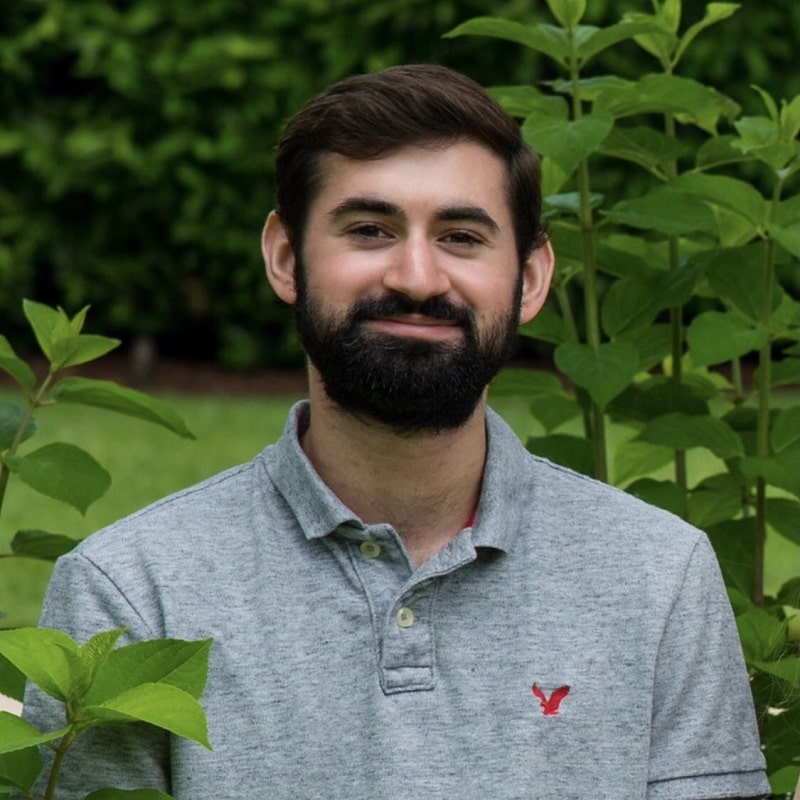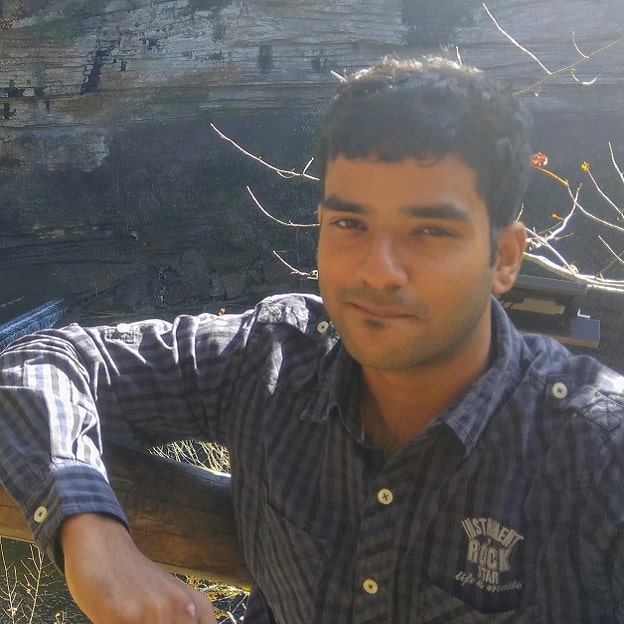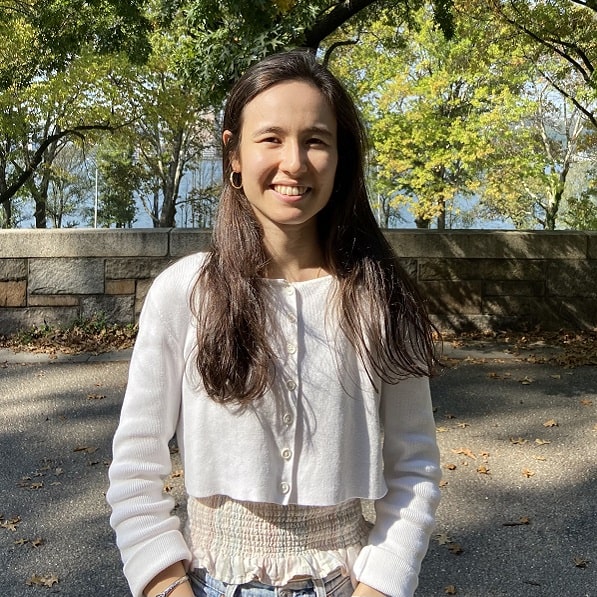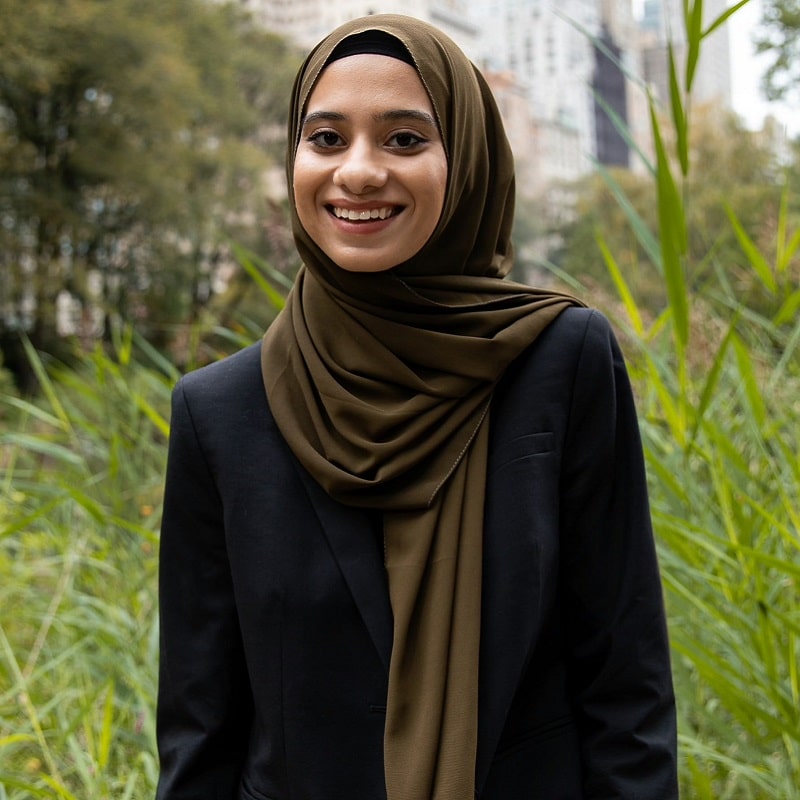NOLP Fellows
UCI Fellows
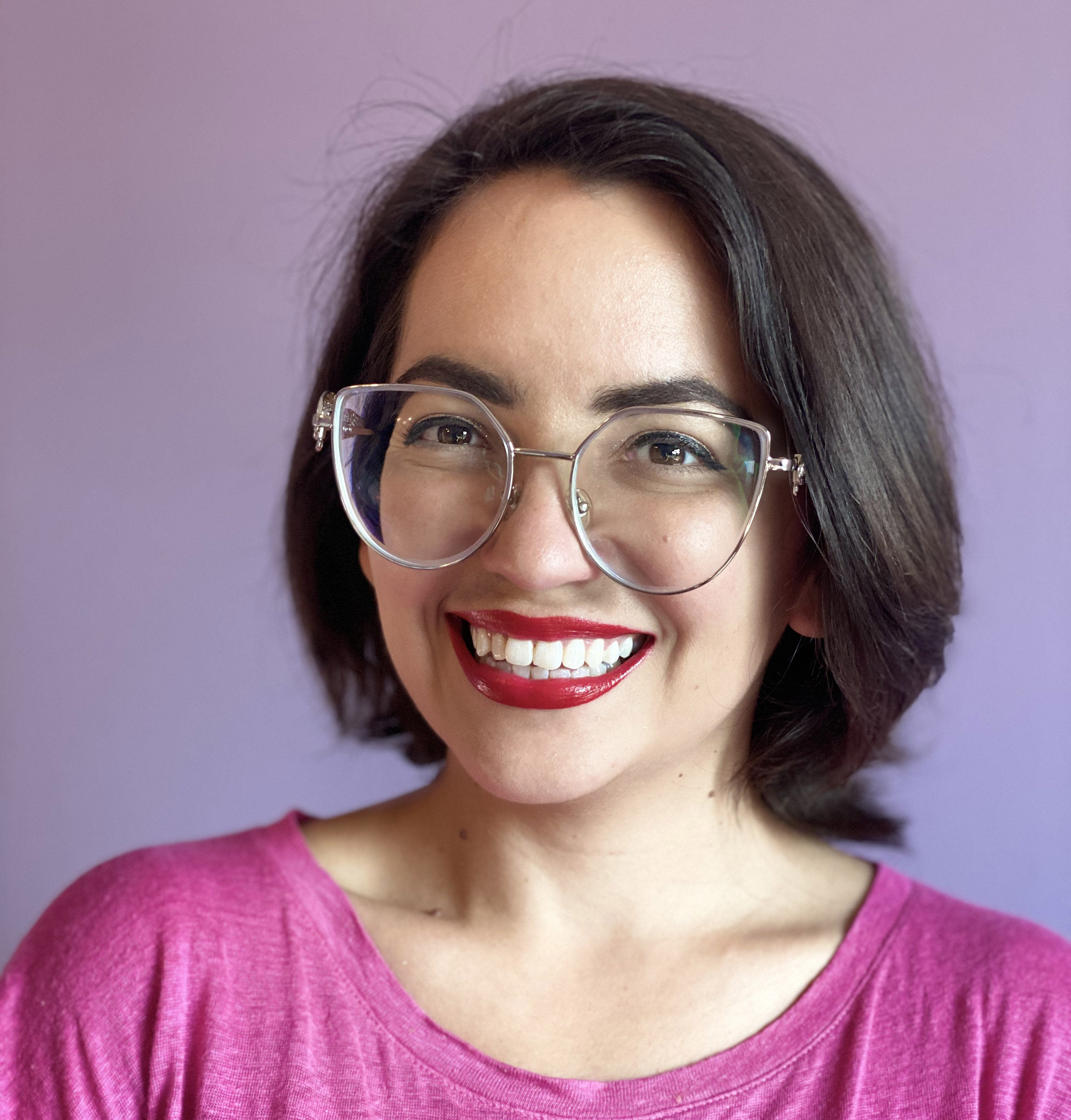
Katy Rodriguez Wimberly
Katy Rodriguez Wimberly is a Physics PhD Candidate at University of California, Irvine. She is an NSF Graduate Research Fellow, a Eugene Cota–Robles Fellow, and an AAS National Osterbrock Fellow. She studies galaxy evolution using both optical telescopes and cosmological simulations. Her research focuses on ultra–dwarf galaxies near the Milky Way. She explores how these tiny galaxies evolve, and what they can tell us about our cosmic neighborhood. Outside of research, Katy is a member of the Board of Directors for the Astronomical Society of the Pacific where she is Co-Chair of their Diversity Committee. In addition, she loves leading outreach and mentorship efforts! Katy has created and leads peer mentorship programs implemented by UCI and the Cal-Bridge Scholarship Program. Aside from all things astro, she enjoys her life as a mama to a toddler and preparing for her second daughter! Family time with her husband, daughter, and pup is her favorite hobby — this includes lots of laughs, hikes, and baby snuggles!
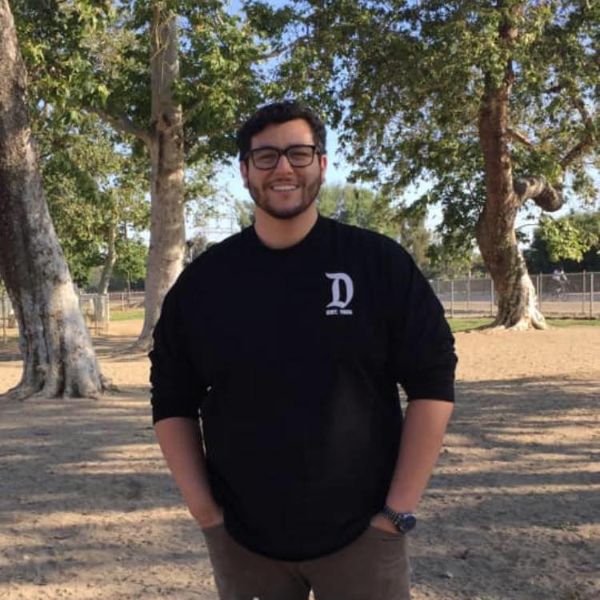
Francisco Mercado
Francisco earned his BS in Physics at Cal Poly Pomona and, later, went on to receive an MS in Physics at UC Irvine. Currently, Francisco is a PhD Candidate in Physics at University of California, Irvine, where he works with Professor James Bullock. In his research, he utilizes large cosmological simulations to study the formation and evolution of galaxies throughout time. Francisco is also the Co-Chair of the Physics and Astronomy Community Excellence (PACE) Program's 2020-2021 Leadership Team.
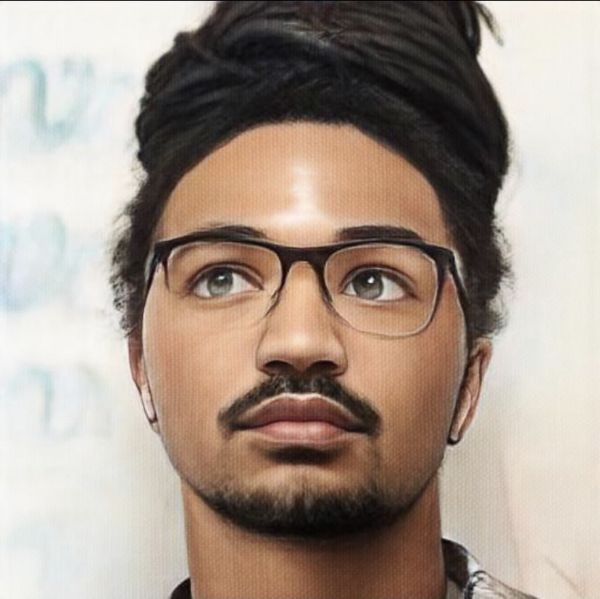
Devontae Baxter
Devontae (Tae) Baxter is a Physics PhD Candidate at the University of California, Irvine. His research involves using a combination of observations, simulations, machine learning, and statistical techniques to better understand the physical processes responsible for suppressing star formation in satellite galaxies. He is a fellow of the LSSTC Data Science Fellowship Program and he also serves as the co-leader of the Physics and Astronomy Community Excellence (PACE) peer mentoring program at UC Irvine. Some of his hobbies include skateboarding, traveling, and learning languages.
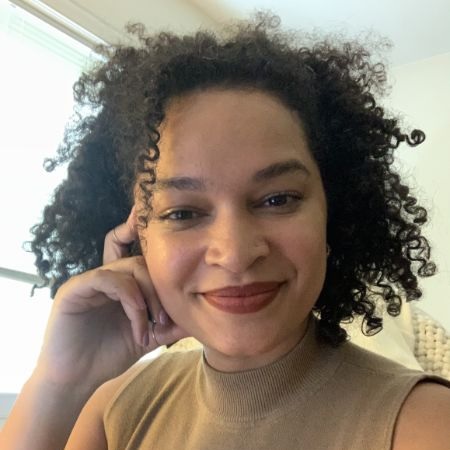
Arianna Long
Arianna Long is Eugene Cota Robles and National Ford Dissertation Fellow at the University of California, Irvine. She is primarily interested in understanding the conditions that birth the most massive galaxies in the universe. Her primary toolkit includes data from major telescopes across the electromagnetic spectrum, such as ALMA and Hubble, and the numerical models she builds using these observations to test predictions. Alongside her scientific roles, Arianna is also a mentor and leader, having founded and led several mentoring programs — including co-founding the PACE Peer Mentoring program, which is now under the NOLP umbrella. Since 2015, she has directly mentored over 100 Black, Indigenous, and Latinx students in STEM. Her ultimate goal is to become a professor where she can spend her days learning more about our cosmos and mentoring the next generation of scientists.
UCSC Fellows

Rosa Wallace Everson
Rosa Wallace Everson is an NSF Graduate Fellow, Eugene V. Cota-Robles Fellow, and Osterbrock Fellow in Astronomy & Astrophysics at UC Santa Cruz, where she studies the evolution of interacting binary stars using semi-analytical and numerical methods, with a focus on common envelope evolution. With Bachelors degrees in both Theatre and Physics, she spent nearly a decade as a professional musician and performing artist prior to training as a scientist. Rosa seeks to integrate her broad experience to bridge science and society, advocate for diversity and inclusion in STEM fields, and inspire and support the next generation of researchers. Recent successes include leading the effort to craft and pass the 2016 Society of Physics Students Statement on Diversity and Inclusivity, which encourages inclusion, support, and retention in undergraduate physics departments on the national level, as well as founding the Osterbrock/Women in Physics and Astrophysics Bridge Scholarship at UC Santa Cruz, which assists undergraduate women and minorities in STEM by directly reducing the financial burden of the graduate school application process.
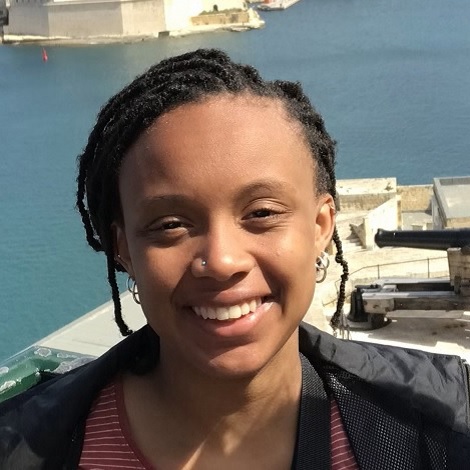
Alexandra Mannings
Alexandra Mannings, hailing from Atlanta, Georgia, is a second-year graduate student in The University of California - Santa Cruz's Astronomy & Astrophysics department. She completed her undergraduate studies at The University of Alabama, where she earned degrees in Physics and Dance. Alexandra is an NSF Graduate Fellow and hopes to use this and the Osterbrock fellowships to advance collaborations between art and science on campus through interdisciplinary research and educational outreach. Alex would also like to explore the various roles that administration can play in supporting fruitful research and learning environments. At UCSC, her research focuses on Fast Radio Burst host galaxy characterization and studying immediate burst environments as a means of constraining progenitor models. When Alex is not doing research, she enjoys teaching dance, watching movies, and spending time outdoors.
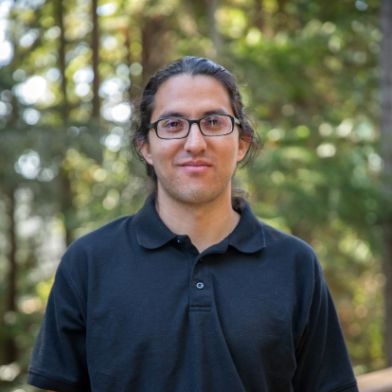
César Rojas-Bravo
I was born and raised in Costa Rica, in Central America. I obtained undergraduate degrees in Physics and Classical Philology at Universidad de Costa Rica and have lived abroad in Barcelona and Brazil, which has helped me have an open mind and enjoy different cultures. In 2017 I started the PhD program in Astronomy at UCSC, pursuing my dreams, where I do exciting supernova cosmology research with Ryan Foley and David Jones. I was involved in the kilonova discovery in August 2017, and that granted me some exposure in Costa Rica. This made me realize I could be a great example for future Costa Rican scientists. Therefore, when I heard about the Osterbrock Leadership Program, I immediately knew it would be a great opportunity to enhance my leadership skills. I also desire to help the Latinamerican community in the United States: I've been providing Spanish translations to astronomical material of Lick Observatory, and have participated in multiple Noche de las Estrellas, a special Lick Observatory visitors night for the Spanish-speaking community.
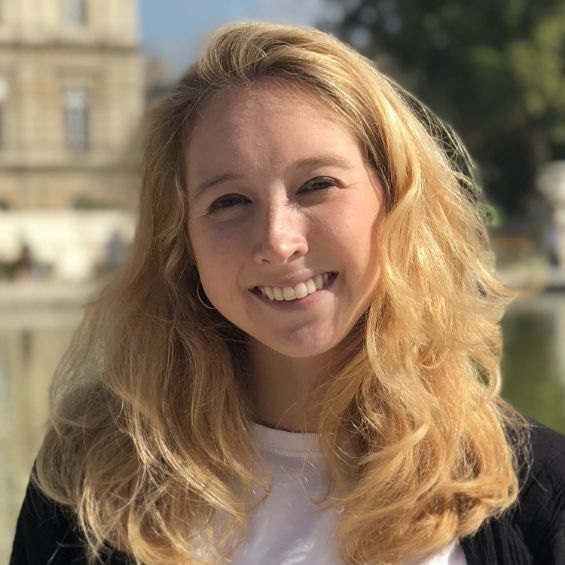
Maggie Thompson
I am a fourth-year graduate student in the Astronomy and Astrophysics Department at UC Santa Cruz. My PhD research focuses on understanding terrestrial exoplanet atmospheres using a combination of laboratory experiments and models. I received my undergraduate degree in astrophysics from Princeton University and have prior research experience at Carnegie Institution and Caltech/JPL.
I am particularly interested in how terrestrial planets obtain their atmospheres and how we can utilize cosmochemistry of objects in the Solar System to improve our knowledge of the formation and evolution of exoplanets. I am performing outgassing experiments on a wide variety of meteorite samples, the leftover building blocks of planets, in order to place experimental constraints on early atmospheric compositions of terrestrial planets.
Beyond doing research, I seek to be an effective teacher and mentor to students and the general public and improve diversity and inclusion in STEM. Through the Osterbrock Leadership Program, I am gaining essential leadership skills and insights into the large-scale operations of the astronomy community while also having the opportunity to delve into one of my passions which is the intersection of science and art. In addition, I am currently organizing virtual workshops through the Rising Stargirls program to engage middle school-age girls of all backgrounds with astronomy and astrobiology. Throughout my career, the tools I acquire through the Osterbrock program will serve me well in my position as a scientist, educator, and member of the astronomy community.
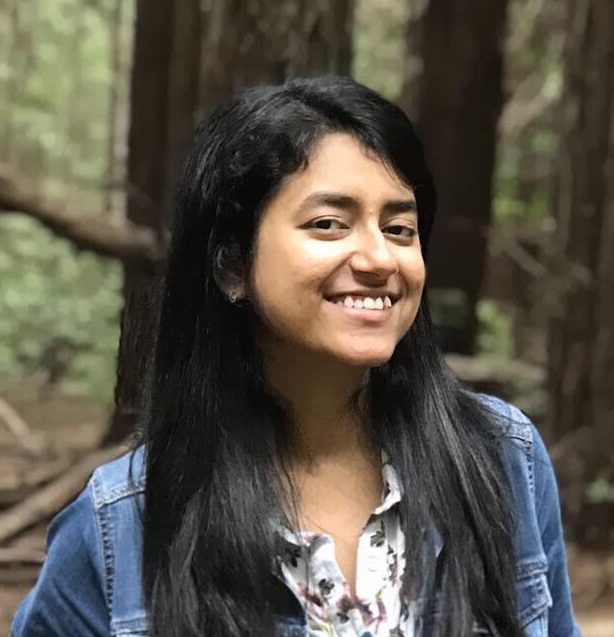
Namrata Roy
I was born in the beautiful city of Kolkata in Eastern India and moved to the US for doing my graduate studies in 2016. I completed my Bachelor's and Master's degrees in Physics from Presidency University, Kolkata. Being in a very strong physics department, I had intense physics training throughout my undergraduate years but not so much in astronomy. That is because astronomy is still a growing discipline in India, especially at the undergraduate level.
However, I was very lucky to find astronomy connections within the department towards the later years of my BSc and throughout my master's years. I was mentored and advised by professional astronomers who were trained in astronomy in the US and eventually came back to their hometown in India to encourage more young students towards astronomy. My interaction with them was the prime motivating factor for me to choose an astronomy career and to be so passionate about it. In terms of research interests, I have worked in a variety of things, ranging from black holes spewing radiation as in Active Galactic Nuclei (AGN), to solar physics and flares. Now I mostly work at the interface between galaxy evolution and AGN physics and how a galaxy is affected by stuff coming out from the black holes in their center. Like my undergraduate mentors, I want to eventually return to my country and help build a stronger astronomy community and make it a component in the undergraduate curriculum. That will require leadership, organizational, and management skills alongside formal academic training. I am very excited to be a part of the Osterbrock program and to acquire all those skill sets during my graduate studies. As an Osterbrock fellow, I wish to organize projects and programs that will strengthen international collaboration amongst astronomers and at the same time make it more accessible to the younger population via different outreach programs. I hope this would eventually pave the way for achieving my longer-term goal of making astronomy education more accessible to the young population in India.
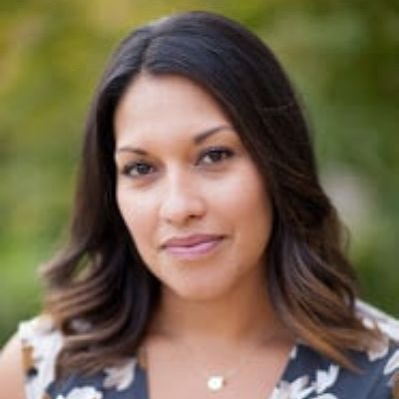
Erica Gonzales
I am a PhD candidate in the Astronomy and Astrophysics Department at UCSC and a UCSC undergraduate alumna (physics, class of 2013). A former real estate broker, I decided to pursue a career in science later in life and I am eager to serve as a role model and mentor other non-traditional, underrepresented students.
In my research, I use the world’s largest telescopes to take pictures of nearby stars to discover previously unknown small stars and planets around them. My dissertation project is to use Kepler archival data, in conjunction with new information about Kepler stars, to untangle signals of planets in binary star systems.
The Osterbrock program and its founders have left an indelible mark on my career. The program has shown me the power of building a network among leaders in astronomy and other fields in order to exact change in the way the public perceives science and how science is taught to our youth.
Columbia U. Fellows

Chris Carr
Chris Carr is a fifth-year graduate student at Columbia University and an AAS National Osterbrock Fellow. As an undergraduate in astronomy & physics at Case Western Reserve University, his research on nearby dwarf galaxies, combined with his senior thesis in the realm of dark matter theory earned him the James C. Wyant Award for Research in Physics. His thesis research now tries to incorporate analytical models, simulations, and observations to understand the interaction between the Milky Way's circumgalactic medium and its surrounding satellites.
Outside of research, Chris is a committed advocate for science literacy, and exploring novel mediums for science communication. For three years, he was the host of the science radio talk show, Enter Galactic, for WRUW-FM 91.1 Cleveland. Since coming to New York City, he has produced astronomy content for Weekly Space Hangout on YouTube and is a host & producer for Astronomy On Tap NYC. He is also deeply fascinated in exploring the contact discontinuity where art & science collide, and since March, Chris has been a participating scientist in the Microcosms program at the Natural Museum of Natural History, which brings scientists & artists together to co-create new ways of translating astrophysical concepts to the stage. Outside of astronomy, Chris loves watching cinema from all over the world, seeing plays, and listening to the jazz of New York.
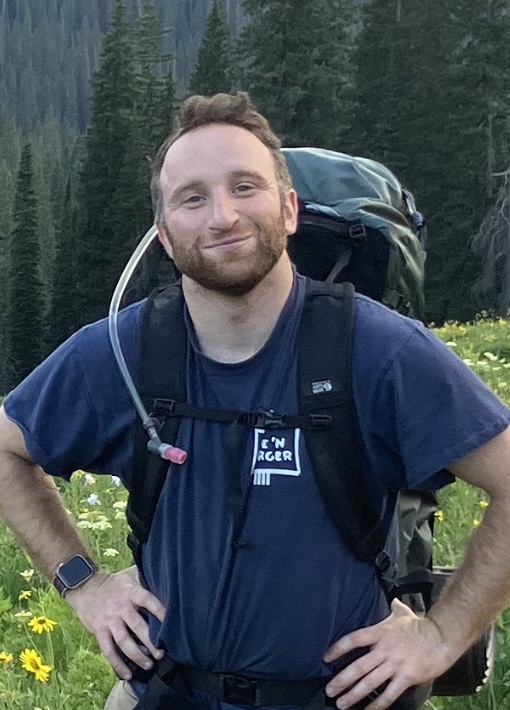
Daniel Yahalomi
Daniel Yahalomi is a PhD candidate in astrophysics at Columbia University who works at the intersection of exoplanet astronomy and data science, primarily in the data-limited regime. A common theme in his work has been fusing dynamical constraints from varied observational techniques in order to study extrasolar planets, particularly in multi-planet systems, with a focus on planetary dynamics and architectures. He received his bachelor’s from MIT in Physics with a Concentration in Astronomy and with Minors in Computer Science and Comparative Media Studies in 2018. After MIT, he spent two years working as a part of the TESS Science Team at the Center for Astrophysics | Harvard & Smithsonian. He is an LSSTC Data Science Fellow and AAS National Osterbrock Fellow.
Daniel is passionate about mentoring younger scientists. From 2018-2023, he volunteered in various roles as a part of the Harvard Science Research Mentoring Program (SRMP), including twice serving as a project mentor and serving as Co-Director of the Harvard SRMP from 2021-2023. Through the Osterbrock Leadership Program, Daniel hopes to create a similar high school research program at Columbia, with an emphasis on providing research opportunities and mentorship to students from typically underserved communities. Outside of astronomy, Daniel enjoys hiking and backpacking, exploring new places, sports, and watching movies.
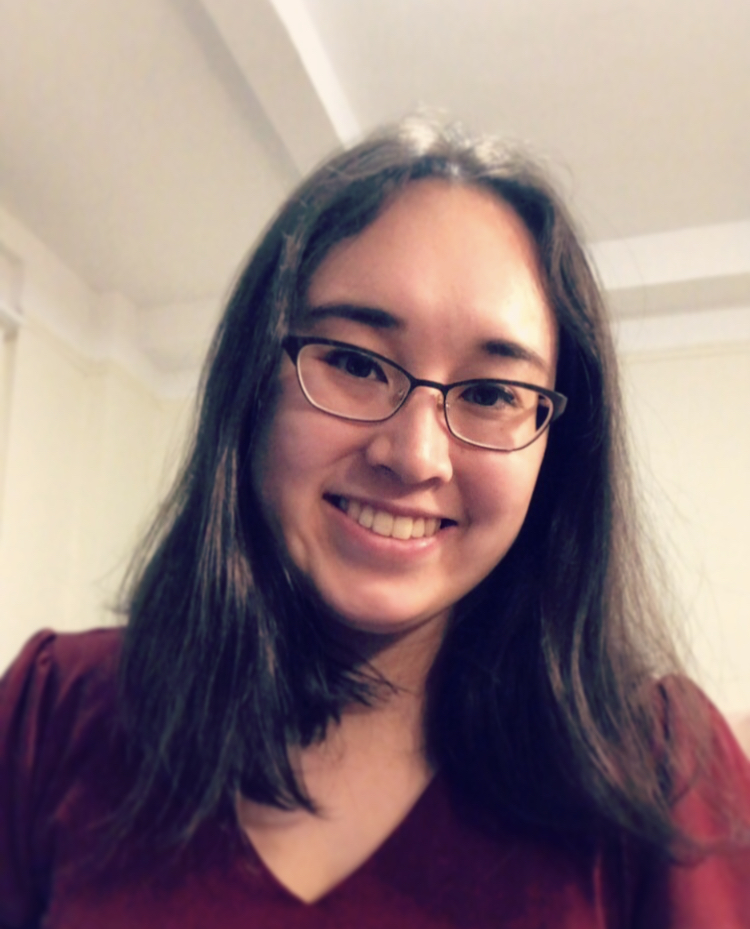
Jen Mead
I am a PhD candidate in Astronomy and NSF Graduate Research Fellow at Columbia University. In 2019, I received my B.S. in astrophysics, economics, and mathematics from Rutgers University following six years of study after deciding to pursue astrophysics in my fourth year. My research broadly focuses on the impact Population III stars — the very first stars in the universe — had on the first steps of chemical evolution. I take a dual approach to my research, using both star-by-star cosmological hydrodynamics simulations to model the mixing of elements in the early universe, and large spectroscopic surveys to try and identify signatures of this mixing in the elemental abundances of metal-poor stars in dwarf galaxies.
The delay in following my own dreams as an undergraduate was heavily influenced by the lack of female and minority representation in physics and astronomy. Because of this, I am deeply committed to using my position as an NOLP Fellow to bring visibility to female and minority scientists to students across the New York City area. I am also very passionate about teaching and promoting the use of research-backed pedagogical strategies in the classroom. I have been a Lead Teaching Fellow and Senior Lead Teaching Fellow through Columbia’s Center for Teaching and Learning. During my tenure in these positions, I helped to build a community of teachers and science communicators at all career levels in the Astronomy department and promoted discussion of interdisciplinary teaching practices. Outside of teaching and research, I enjoy reading fantasy books, watching crime shows, practicing martial arts, and learning languages.
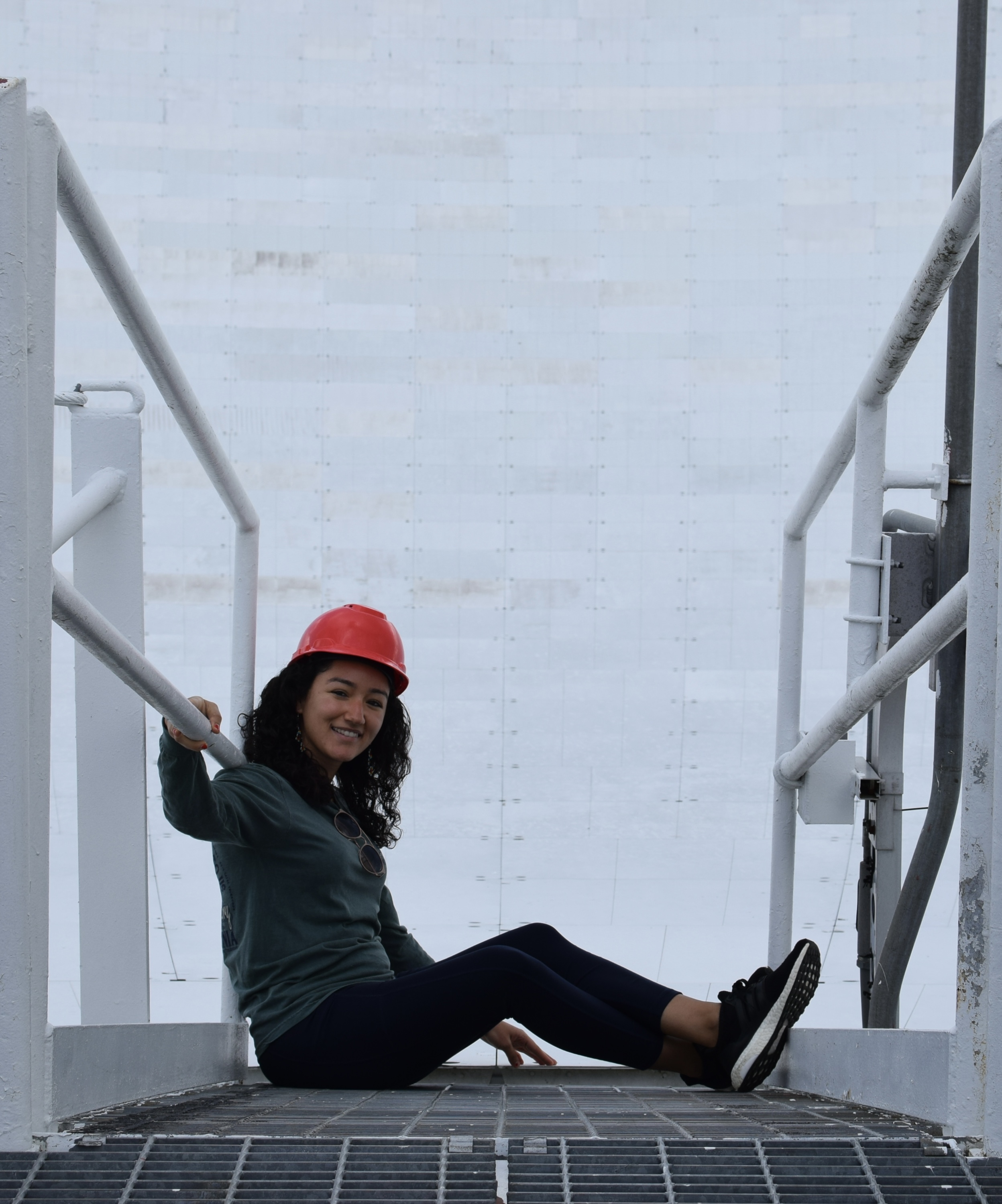
Karen Isabel Perez
Karen Isabel Perez is a first-generation Mexican-American PhD Candidate in Astronomy at Columbia University. Her journey, ignited by a 10-year Gates Millennium Scholarship, began with a B.A. in Astrophysics from Cornell University, where she discovered her favorite wavelength was the radio. Her thesis focuses on conducting a multi-wavelength analysis on redback candidates and transitional millisecond pulsars, as well as searching for pulsars and transients in the Galactic Center using the Green Bank Telescope. She has also been actively involved with Breakthrough Listen since 2019, contributing to the search for extraterrestrial intelligence (SETI), and mentoring undergraduates in their radio-related projects.
Karen is on a mission to make science accessible to historically underrepresented minorities, particularly Hispanic families. She’s dedicated to raising awareness about STEM opportunities by sharing her journey, and those of fellow scientists, to inspire young minds and empower parents with necessary resources to navigate the education system. Through the National Osterbrock Leadership Program, Karen seeks to deepen her understanding of the ethical, economic, and political challenges impacting space exploration, both on Earth and beyond. Her long-term goal is to be part of large-scale, generational projects, as both a research and advisor. When not looking towards the stars, she enjoys bouldering, salsa dancing, and learning new languages.
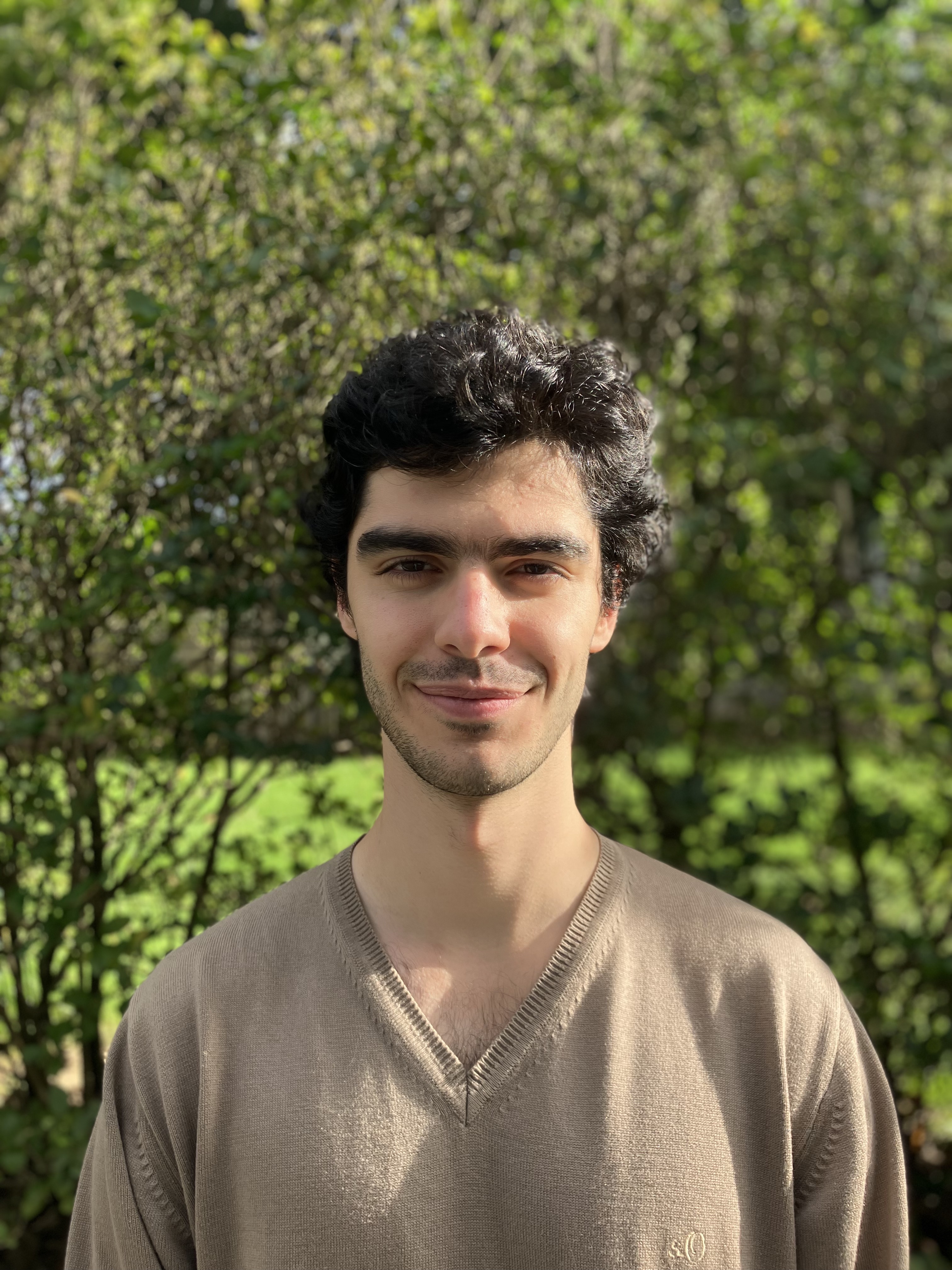
Kiyan Tavangar
Kiyan Tavangar is a second-year Astronomy PhD Student at Columbia University. He completed his undergraduate studies at the University of Chicago, earning an Astrophysics B.S. and a Mathematics B.S. Kiyan is primarily interested in both observations and simulations of structure in the Milky Way, mostly falling under the category of Galactic dynamics. His main research project is examining the formation and evolution of the Gaia "snail" using high-resolution N-body simulations and novel numerical techniques. In addition, Kiyan works on stellar streams and globular clusters. Finally, he is currently starting a project on empirically mapping halo dissolution in the Milky Way.
Other than research, Kiyan is interested in teaching at all levels. Currently, he is thinking about how to help the ever-growing number of undergraduates interested in astronomy research. To that end, he is designing a course to introduce undergraduates to research skills, meant for those with no prior experience, to prepare them for summer internships. He is also mentoring a group of undergraduates on stellar stream research, part of Columbia's outreach leadership team, and tutors elementary school children once a week. Outside of academia, Kiyan has always enjoyed playing sports and watching movies. He ran for UChicago's cross-country team for four years in college but also enjoys soccer and tennis both as a player and a fan.
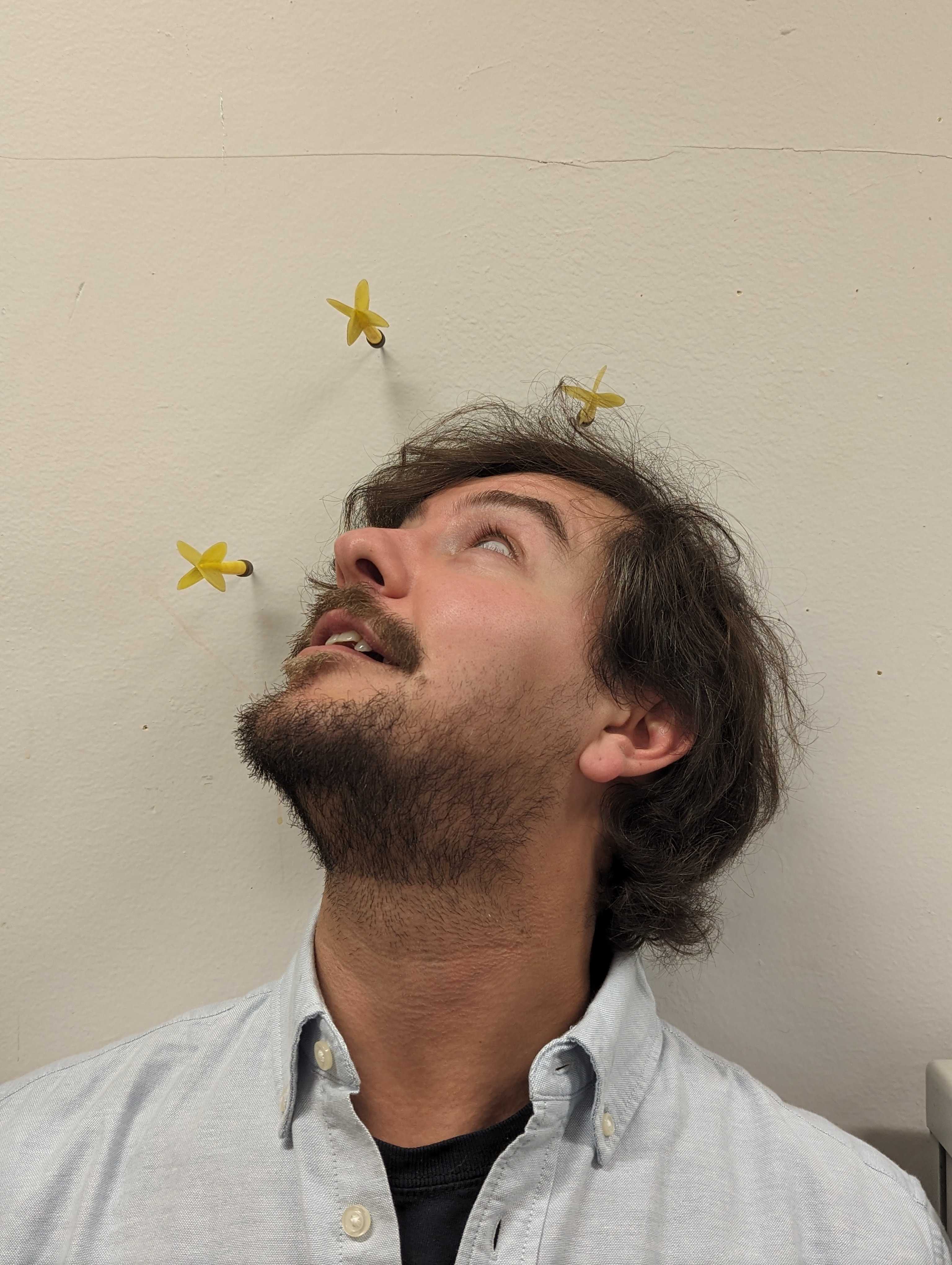
Max Lee
Max is a second-year NSF Graduate Research fellow and AAS National Osterbrock Leadership fellow at Columbia University. His work primarily focuses on the connection between simulations and cosmological analyses. He is especially interested in better understanding the structure of the universe and its evolution through weak gravitational lensing observations. Max's path to academia was highly nonlinear and involved many years traveling the country, working on organic farms, and managing environmental non-profit fundraising offices. He returned to Cabrillo Community College, where he was inspired to pursue physics and astronomy. After obtaining associate degrees in Math and History, he transferred to U.C. Berkeley and completed a Bachelor of Arts with majors in Physics and Astronomy. He then spent a year at Columbia University solely focussing on research, after which he enrolled as a graduate student. Max is passionate about science, communication, and outreach. He is developing a community college mentoring program to engage, mentor, and inspire students to pursue careers in science.


